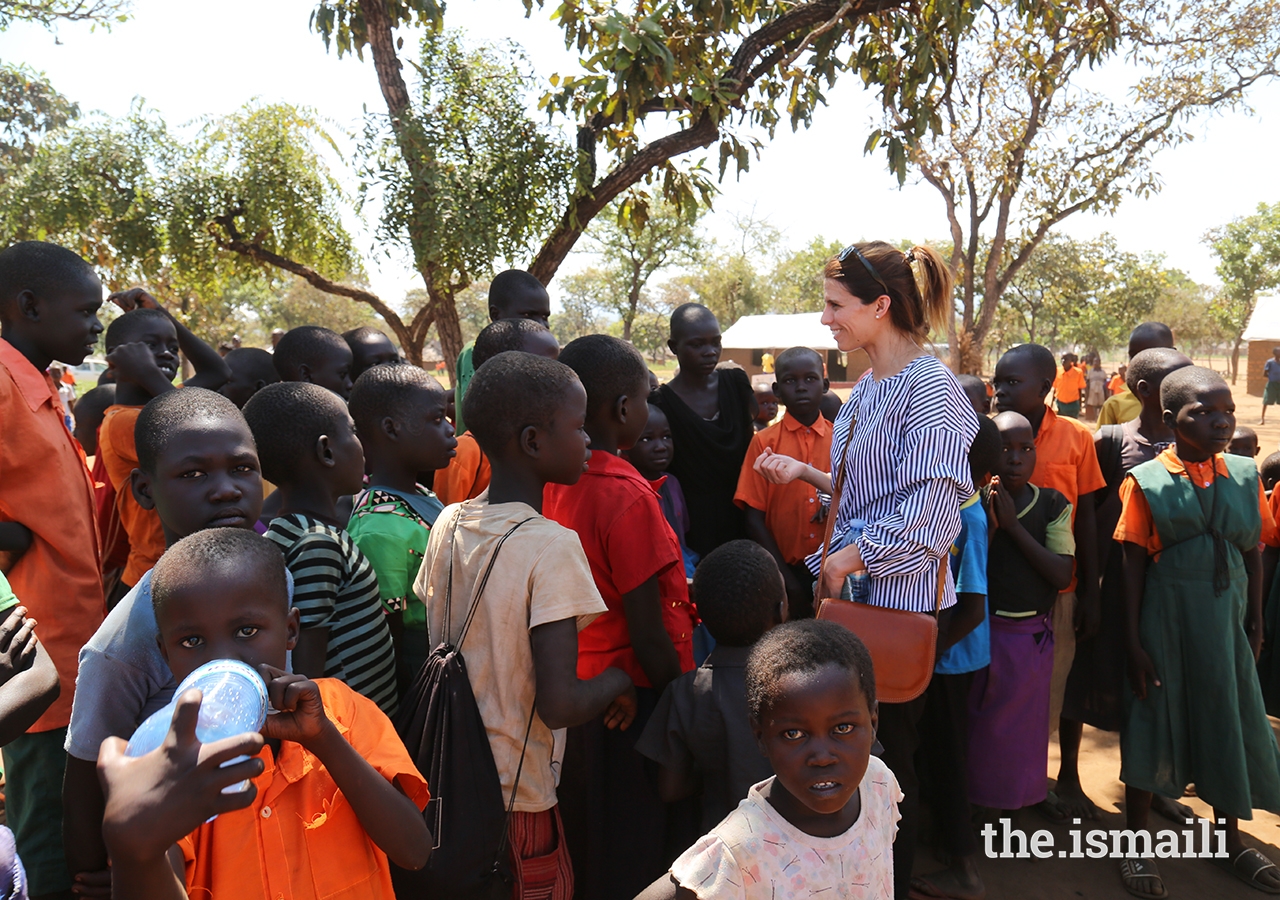In the episode, Farah explains how these milestones affected her life and the life of many children in rural Uganda.
“I know that everything that I’ve done since [fleeing Rwanda], including Wakadogo and especially Wakadogo, has been in honour of Clementine, and of all the other people who suffered and who died tragically during that terrible time,” Farah said, referring to her childhood nanny who was killed during the genocide.
A passionate and humble advocate for the community, Farah shares what motivated her to build a school in Northern Uganda. Although she faced challenges, these were the catalyst to development and growth for the children of rural Uganda.
Upon visiting Uganda, at a time when the Lord’s Resistance Army were abducting children and turning them into child soldiers or sex slaves, Farah, her friend Andrea, and her mother knew that something needed to be done. There was no infrastructure where they were, no health centres and no schools; the impact and power of education were being lost on a whole population.
“When we spoke to parents, community leaders, and children, everyone was telling us, ‘we want schools, we need to go to school, we want to be in school’, but there were no schools,” Farah said. “And so it just made us think how important it was that we did something in terms of education provision because of that desperate call for education.”
Farah spoke with the then High Commissioner of Uganda in Canada and through bake sales and other fundraising events, they managed to raise $100,000. A few months later the Wakadogo roots were laid and the charity was registered. She reiterates to those who have goals similar to hers how important it is to stay focused and not lose sight of your objective.
“It’s up to us as individuals to go out there and do whatever we can in whatever small or big way to help make a difference.”
Wakadogo began in 2009 with 80 students. Today, 450 students are enrolled and the project continues to grow. However, due to Covid-19, students are unable to attend school, and unlike many other schools who have adapted to online learning, many of the students in Gulu do not have the technology to do so. Wakadogo has had to think of other creative ways in which their students could continue their education from home. Farah explained that teachers go to individual students’ communities to deliver lessons safely from outside the household.
Finally, Farah, who is also the Director of Gulf and Strategic Partnerships at Plan International Canada, shares words of inspiration to those seeking to make a difference in their own communities or abroad: “I would just say to anyone who’s wanting to do something like that, do it. Don’t ever let anyone tell you that you can’t. And if they do, just do it.”
This episode will air live on Friday, 5 March on The Ismaili TV at 10 am, 2:30 pm, 8 pm, and 11 pm EST; 9 am, 3 pm, and 7:30 pm GMT; and 1 pm, 7 pm, and 11:30 pm GST.
After airing, this episode will also be available to watch in full on The Ismaili TV On Demand.
Last week, on the premiere of Trailblazers, we heard from The Honourable Salma Lakhani, the 19th Lieutenant Governor of Alberta. You can now watch the episode on demand here.
---
Edit: This episode is now available on The Ismaili TV On Demand at https://tv.ismaili/watch/trailblazers-stories-of-excellence-farah-williamson-co-founder-project-shelter-wakadogo-uganda.








